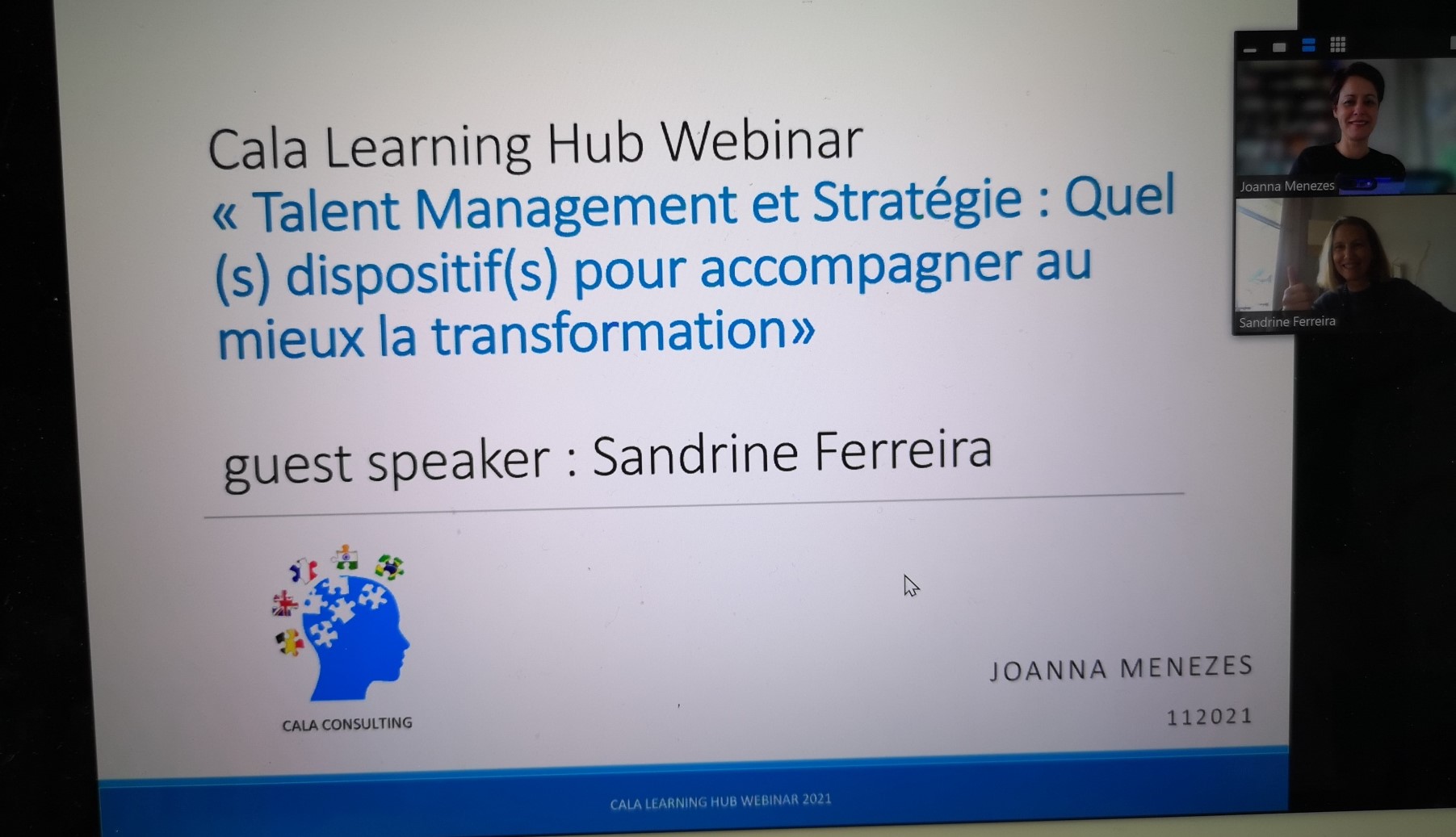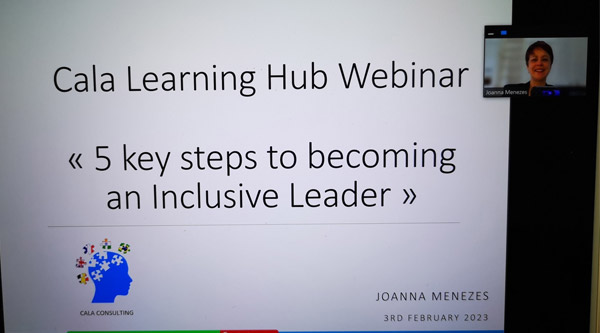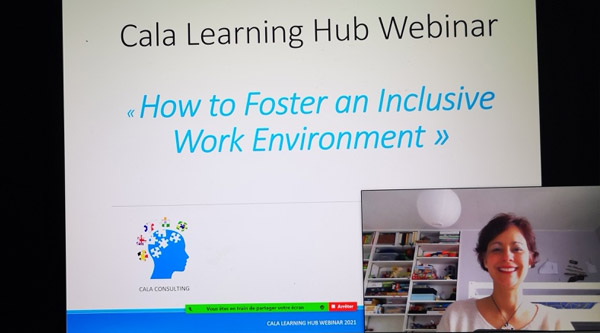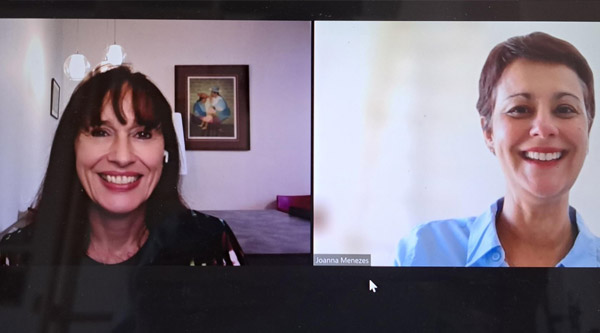Mad skills, upskilling, reskilling... All this jargon, which we hear more and more and which relates to talent management in companies, needs to be clarified. "Human Resources professionals need to communicate more on these notions and on the tools available to their employees, because the latter are not sufficiently aware of them", says Sandrine Ferreira, certified coach and HR consultant, who led the latest Cala Learning Hub webinar on the subject of talent management. About thirty participants came to hear her insights and ask their questions.
What do we mean by 'talent'?
The notion of "talent" can vary from one company to another. For some, talent refers to the so-called "high potential" employees, i.e. employees who have a rare skill and have greater added value. For others, everyone is special and has talent. In all cases, the question of talent is defined by the French professor Jean-Marie Peretti as an exceptional capacity at the interface between competence and potential. In short, it is an ability that often comes naturally. "It's something I've always had, which is in me and which I readily put to use," explains Sandrine Ferreira.
What can HR do to manage their talent?
When it comes to talent management, the most important thing is for HR to ask the right questions: How can a company reach its strategic objectives? Do we have the right people in the right place? Which skills will become less relevant over time?
- Skills Mapping
When assessing and recruiting employees, HR identifies "hard skills" (technical skills and knowledge), "soft skills" (personal qualities), but also increasingly what are called "mad skills". The latter are in fact particularly rare soft skills that recruiters are looking for. For example: the ability to make mistakes and bounce back, altruism (volunteering, mentoring, etc.) or the willingness to take action in a critical situation.
- Training
To develop talent, HR offers various training courses. "Upskilling" refers to training designed to develop skills in order to continue working in the same job or field of activity. "Reskilling" refers to training that enables employees to acquire new skills in order to change jobs.
- Skills assessment
Various methods can be used to assess and develop employees. Assessment centres allow HR to check whether the candidate has the abilities to succeed in an assignment. Continuous assessments provide a real-time view of the level of performance of each employee and enables the objectives to be readjusted if necessary. The People Review allows us to identify employees who can be placed in a role with greater responsibilities.
- Talent management tools
Many HR tools exist to assess the talents in a company. The 360° or 180°, for example, offers a cross-sectional view of an employee's capabilities. The Success Profile ensures that the right people are in the right place. Personality tests, when well chosen, offer a global vision of the character traits likely to be at the origin of future successes or difficulties. Finally, the 9Box matrix allows HR to assess an employee's current and potential level of contribution to the company.

Blog article written by par Laure Blancard : https://www.linkedin.com/in/laure-blancard/







 Copyright © 2016 - 2026 - Cala Consulting
Copyright © 2016 - 2026 - Cala Consulting